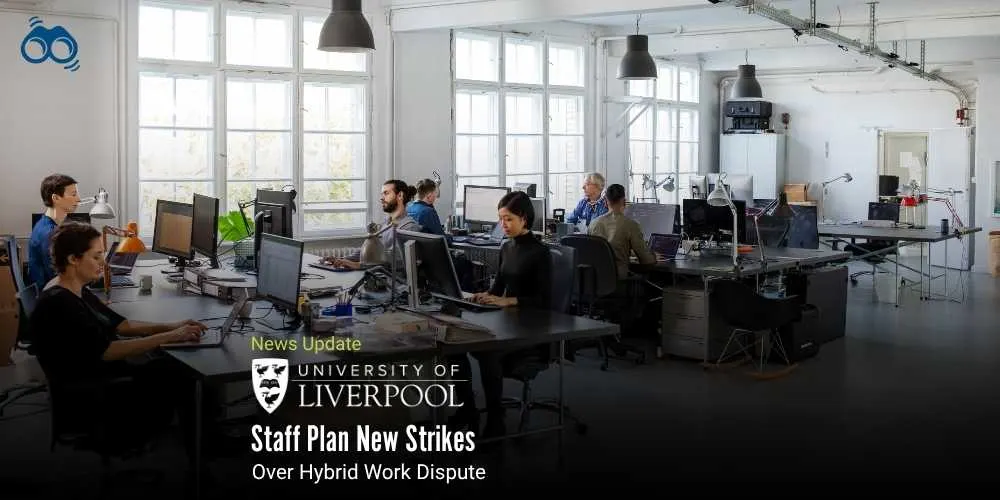University of Liverpool Faces Disruption as Staff Protest On-Campus Mandate
Hybrid Working Dispute Triggers Fresh Wave of Strikes at University of Liverpool
The University of Liverpool is facing renewed disruption as hundreds of professional services staff prepare to stage further strikes in protest against changes to hybrid working arrangements. The dispute, which has persisted for several months, centres on the university’s decision to increase mandatory on-campus working from 40% to 60%, a move that Unite, the trade union representing staff, claims was introduced without adequate consultation.
According to reports, more than 340 staff members, including those responsible for essential administrative functions such as graduation ceremonies, clearing, and confirming student places, are expected to strike on 14 August, coinciding with A-level results day. Further industrial action is scheduled from 16 to 19 September, aligning with the arrival of new and returning students. These dates are likely to cause significant disruption to university operations during critical periods.
In addition to the planned strikes, Unite has reportedly imposed an overtime ban, which is expected to affect graduation ceremonies and other scheduled events. The union has criticised the university’s approach, describing the changes as heavy-handed and detrimental to staff wellbeing and work-life balance. Unite regional officer Sam Marshall stated that the university’s management was responsible for the ongoing disruption and urged them to retain the current arrangements while working collaboratively towards a flexible and practical solution.
In response, the university defended its policy, stating that many staff already work fully on campus and that increasing on-site attendance to 60% for those working partly from home is a reasonable adjustment for a face-to-face education provider. The institution also emphasised its commitment to progressive employment practices that support flexibility, choice, and a healthy work-life balance.
Unite members had previously held strikes on two open days in June and organised a rally to voice their opposition to the revised working requirements. The union has pledged continued support for its members until a resolution is reached. The dispute highlights the growing tension between institutional policy and employee expectations in the evolving landscape of hybrid work.
Editor’s Note:
The strikes at the University of Liverpool show the growing challenges universities face as they adjust to new ways of working. The main issue is a change in hybrid working rules; staff are now being asked to spend 60% of their time on campus instead of 40%. Union members say this change was made without proper discussion and has caused worries about work-life balance and staff wellbeing. What makes the situation more serious is the timing of the strike. Staff plan to stop work during important events like graduation ceremonies and when new students arrive, which could cause major disruption. The university says its new policy is fair and supports face-to-face education, but the lack of proper communication has led to more tension. Hybrid working is now a regular part of many jobs. For it to work well, there needs to be trust and open conversations. Some universities, like Manchester and Leeds, have found better ways by listening to staff and finding common ground.
Skoobuzz asserts that the University of Liverpool now needs to make a clear choice whether it sticks to rigid rules that risk damaging staff morale and trust, or take the wiser path, engage openly with its workforce to build a fairer, more sustainable model of working that reflects the realities of modern higher education.














0 Comments (Please Login To Continue)